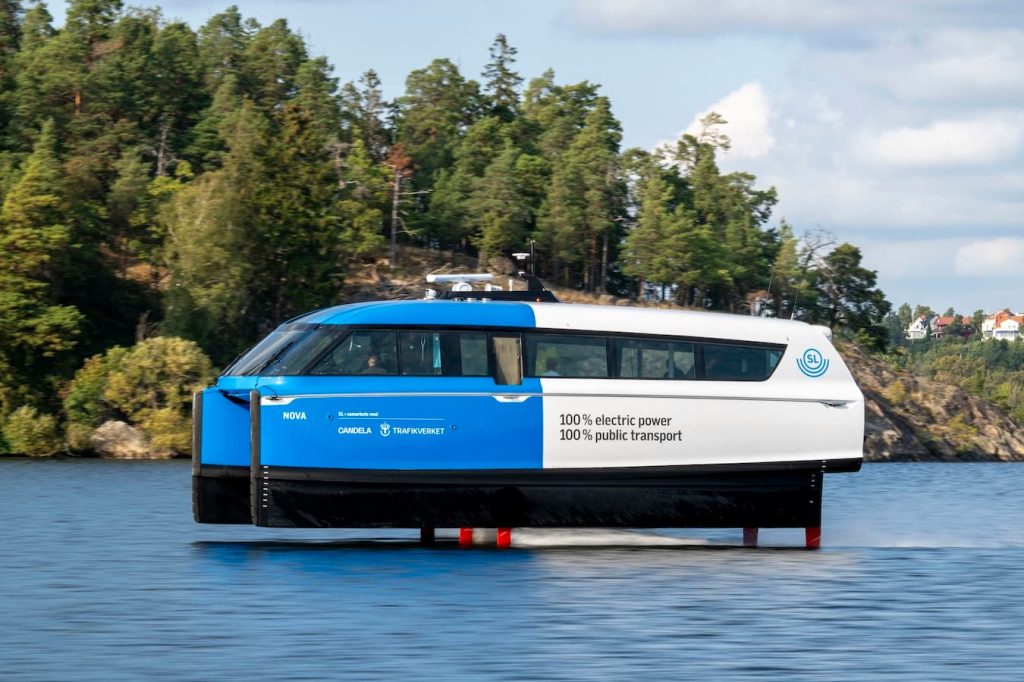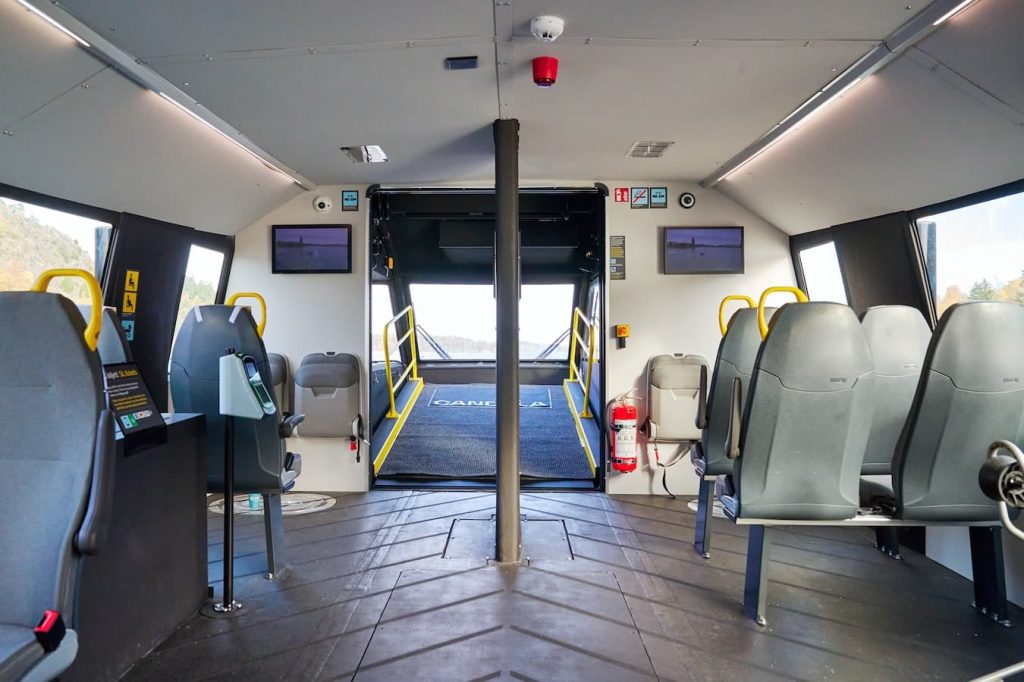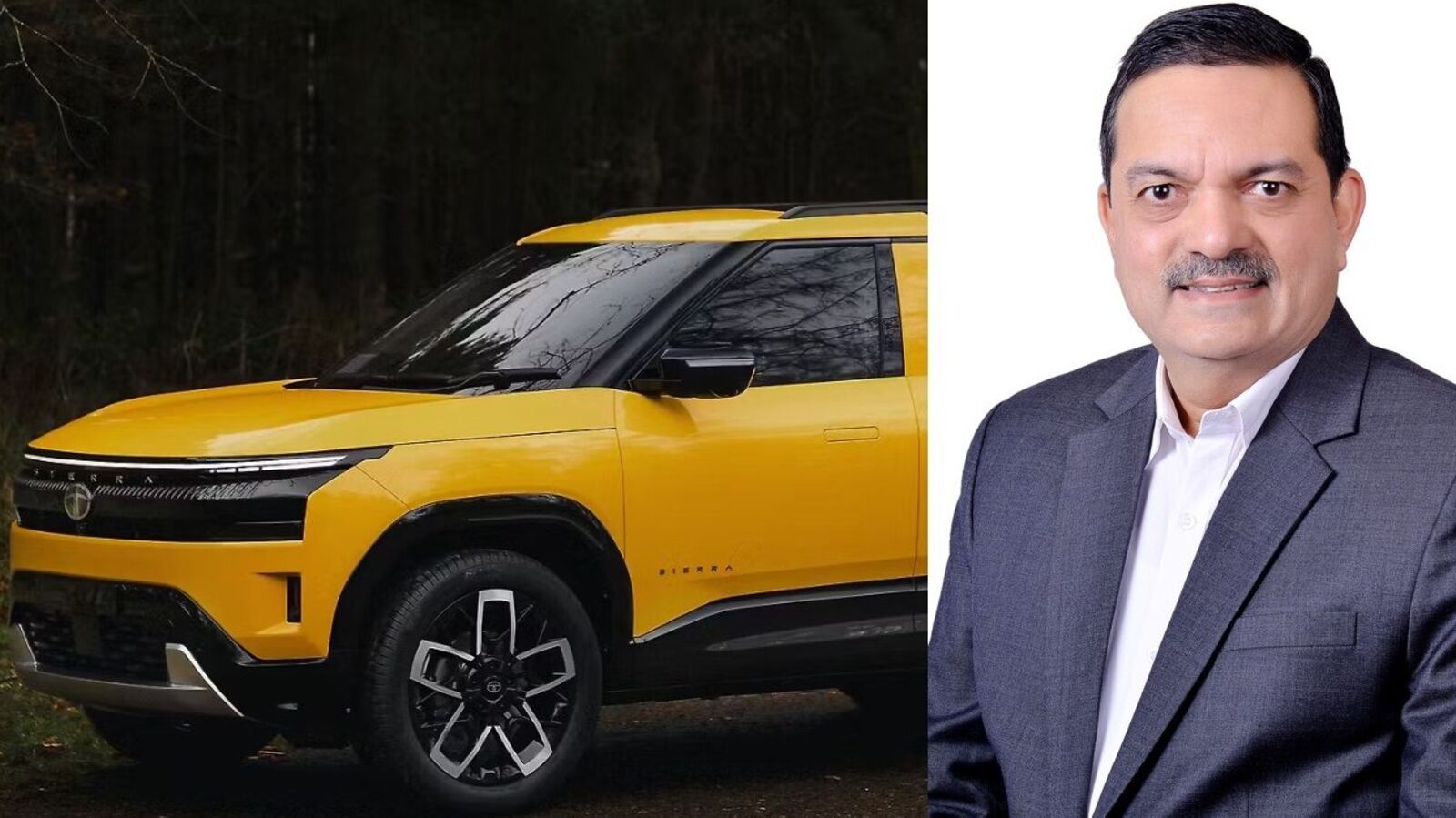As Candela’s P-12 gracefully flew over the waterways in Stockholm this morning, the event marked the first-ever commercial operation of a hydrofoil electric ferry.
It’s been a long time coming for the P-12, with years of development resulting in the first images of the boat released over two years ago and testing getting started only last year.
Now the first Candela P-12 in commercial operation, named “Nova”, set out this morning from Tappström, quickly reaching its destination at Stockholm City Hall. The 15 km (9 mile) journey took just 30 minutes, or around half the time it normally takes by car or public transit.
But it’s not only quicker by boat, it’s also a lot more comfortable, at least if commuters are on Candela’s boats. The P-12 electric ferry glides above the water using a set of computer-controlled hydrofoils, making the ride smoother and allowing the boat to keep up speed even in no-wake zones. That means it even arrives faster than conventional boats since it doesn’t need to slow down in no-wake areas.

The other key benefit to those hydrofoils, besides making for a super smooth ride and removing the influence of nausea in commuters who are prone to sea-sickness (like this journalist who has successfully kept his breakfast down on multiple Candela boats so far), is that the P-12 is also extremely efficient.
According to the company, those hydrofoils result in energy savings of around 80% compared to conventional boats, allowing the Candela P-12 to use a much smaller battery and significantly reducing the cost to produce and purchase. DC Fast Charging is possible from a conventional car charger located at the docks and can be done in minutes over a lunch break, meaning it won’t impact the normal timetables for the ferry.
“Conventional ships haven’t evolved much in 100 years and are among the least energy-efficient transport modes, only rivaled by a battle tank,” says Gustav Hasselskog, Founder and CEO of Candela.
That’s not an exaggeration. Stockholm’s approximately 70 public transport vessels use more fossil fuels than the city’s buses and trains combined, despite representing only a small share of total ridership. Water transport is traditionally costly and slow, as the vessels create large wakes, limiting their speed in many areas. But with Candela’s P-12 electric hydrofoil ferry, trips are now not only quicker and more comfortable, but also more efficient and with significantly lower costs. And that’s before adding in the benefits of reduced pollution and harmful emissions.
“For the first time, there is a vessel that makes waterborne transport faster, greener, and more affordable than land transport. It’s a renaissance for the world’s waterways, and it’s exciting that Stockholm is leading the way,” said Gustav Hasselskog.


Nova runs entirely on renewable energy and is the fastest electric ferry in operation in the world, cruising at 25 knots, outpacing diesel-powered V-class ferries that previously held the speed record.
This may be just the first example of commercial operations for the Candela P-12 platform, but it’s likely to soon be followed by many others after orders have been placed from Saudi Arabia, New Zealand, and Germany, among additional clients that Candela says are yet to be publicly announced.
Until then, take a look at my own test ride on the first ever production Candela C-8, a consumer electric hydrofoil speedboat that uses much of the same technology employed in the Candela P-12 electric ferry.
FTC: We use income earning auto affiliate links. More.





